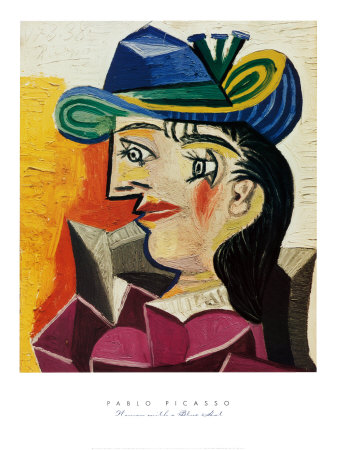You are using an out of date browser. It may not display this or other websites correctly.
You should upgrade or use an alternative browser.
You should upgrade or use an alternative browser.
Duke and Duchess of Cambridge = ο δούκας και η δούκισσα του Κέμπριτζ
Σωστή η παρατήρηση περί ορέξεως, αλλά περισσότερο το σχόλιό μου πήγαινε στο γεγονός ότι, παρόλο που κατά κανόνα οι μουσικές τής Ντίσνεϊ μου αρέσουν, το συγκεκριμένο (που με αυτές παρομοιάστηκε) δεν μπόρεσα να το αντέξω καθόλου για γαμήλιο χορικό άσμα.Ο καθένας μας μπορεί να έχει διαφορετικά γούστα στη μουσική, σωστά; Κι εμένα μου άρεσε πολύ.
SBE
¥
Όντως, άσπρο δε φόραγε καμία καλεσμένη στο γάμο, βλ. φωτό πιο κάτω, αλλά ίσως στην τηλεόραση να φαίνονταν άσπρα ορισμένα.
Παρεμπιπτόντως, στη φωτογραφία της Παλάβρας να θυμόμαστε ότι η αδερφή της νύφης είναι 27 ετών, και να τι σου κάνει το μαύρισμα από λάμπα. Όσο για το φόρεμα εμένα μου φαίνεται πολύ κοινό σχέδιο, αλλά ζω στην Αγγλία κι οι Αγγλίδες ντύνονται έτσι συνεχώς γιατί είναι το ιδανικό κόψιμο για τον σωματότυπό τους. Και εδώ είδαμε την άψογη εκτέλεση του από σοβαρή μοδίστρα.

ΥΓ. Έχω παρατηρήσει ότι η Ελισάβετ έχει πάντα κουβέρτα στα πόδια της όταν είναι στο αυτοκίνητο, κι όπως την είδα στο γάμο μου φάνηκε πολύ ετοιμόρροπη, οπότε ποιός ξέρει, μπορεί να δούμε και βασιλική κηδεία στα επόμενα χρόνια. Και πριν μου πείτε ότι είναι 85, ο Φίλιππος είναι 90 και τις προάλλες ήρθε επίσκεψη στο πανεπιστήμιο και ήταν ακμαιότατος.
Παρεμπιπτόντως, στη φωτογραφία της Παλάβρας να θυμόμαστε ότι η αδερφή της νύφης είναι 27 ετών, και να τι σου κάνει το μαύρισμα από λάμπα. Όσο για το φόρεμα εμένα μου φαίνεται πολύ κοινό σχέδιο, αλλά ζω στην Αγγλία κι οι Αγγλίδες ντύνονται έτσι συνεχώς γιατί είναι το ιδανικό κόψιμο για τον σωματότυπό τους. Και εδώ είδαμε την άψογη εκτέλεση του από σοβαρή μοδίστρα.

ΥΓ. Έχω παρατηρήσει ότι η Ελισάβετ έχει πάντα κουβέρτα στα πόδια της όταν είναι στο αυτοκίνητο, κι όπως την είδα στο γάμο μου φάνηκε πολύ ετοιμόρροπη, οπότε ποιός ξέρει, μπορεί να δούμε και βασιλική κηδεία στα επόμενα χρόνια. Και πριν μου πείτε ότι είναι 85, ο Φίλιππος είναι 90 και τις προάλλες ήρθε επίσκεψη στο πανεπιστήμιο και ήταν ακμαιότατος.
Και πριν μου πείτε ότι είναι 85, ο Φίλιππος είναι 90 και τις προάλλες ήρθε επίσκεψη στο πανεπιστήμιο και ήταν ακμαιότατος
Κορακοζώητοι είναι πάντως οι βρετανοί royals... ό,τι η φύση τους στέρησε σε ομορφιά, τους χάρισε σε χρόνια.
Χειλεοαναγνώστρια αποκαλύπτει τις συνομιλίες των πρωταγωνιστών
(και έτσι, η μία και μοναδική (!) εμφάνιση της λέξης χειλεοαναγνώστρια στον γκούγκλη έπαψε να είναι μοναδική -χειλεοαναγνώστες και χειλεοαναγνώσεις υπάρχουν μπόλικες...)
(και έτσι, η μία και μοναδική (!) εμφάνιση της λέξης χειλεοαναγνώστρια στον γκούγκλη έπαψε να είναι μοναδική -χειλεοαναγνώστες και χειλεοαναγνώσεις υπάρχουν μπόλικες...)
SBE
¥
Ο Φίλιππος ήταν πολύ ωραίος στα νιάτα του και τώρα είναι ο τυπικός λεβεντόγερος. Η Ελισάβετ επίσης βλεπόταν. Στα παιδιά τους χάλασε η συνταγή, ειδικά σ'αύτη την κακομοίρα την Άννα, αν και αυτή ακόμα για δέκα δευτερόλεπτα όταν ήταν είκοσι χρονων με σωστό φωτισμό και καλό φωτογραφο δεν τρόμαζε τους περαστικούς και τα μικρά παιδιά.Κορακοζώητοι είναι πάντως οι βρετανοί royals... ό,τι η φύση τους στέρησε σε ομορφιά, τους χάρισε σε χρόνια.

Όσο για το τι λέγανε μεταξύ τους, τα μισά τα είχαμε καταλαβει κι εμείς, και δεν έλεγαν και τίποτα κρατικά μυστικά.
Καημένη Βεατρίκη, τι σου 'μελλε να πάθεις!
Princess Beatrice's hat becomes an internet sensation
Star Trek weapon, cat flap and, least kindly of all, toilet bowl – Princess Beatrice’s fascinator has certainly been fascinating the internet pranksters since Friday’s ceremony.
A Facebook site entitled Princess Beatrice’s Ridiculous Royal Wedding Hat had last night attracted 123,675 visitors so far, with one asking whether she was a new Doctor Who villain.



Princess Beatrice's hat becomes an internet sensation
Star Trek weapon, cat flap and, least kindly of all, toilet bowl – Princess Beatrice’s fascinator has certainly been fascinating the internet pranksters since Friday’s ceremony.
A Facebook site entitled Princess Beatrice’s Ridiculous Royal Wedding Hat had last night attracted 123,675 visitors so far, with one asking whether she was a new Doctor Who villain.



Καημένη Βεατρίκη, τι σου 'μελλε να πάθεις!
Δυο τρία σχόλια, έτσι πρόχειρα: Ήθελές τα κι έπαθές τα. Ας πρόσεχες. You had it coming. The
She hat it coming! :laugh:
Hats off to Cadmian. Chapeau, monsieur!
Για άλλες τρελές καπελαδούρες, στη σελίδα της Τρελής Καπελούς.;)

Από το σημερινό ηλεδελτίο του Κουίνιον, βρήκα αυτή την ωραία σύνταξη στη Daily Telegraph:
Princess Beatrice, who is starting a history degree at Goldsmiths College, London, later this year, was photographed running in the surf on the island of St Barts with her American boyfriend Dave Clark dressed in a blue bikini last month.
Τη Βεατρίκη την έχουν με μπλε μπικίνι (όχι ιτσιμπιτσιτινιγουίνι βέβαια), αλλά τον Ντέιβ πουθενά. :twit:
Princess Beatrice, who is starting a history degree at Goldsmiths College, London, later this year, was photographed running in the surf on the island of St Barts with her American boyfriend Dave Clark dressed in a blue bikini last month.
Τη Βεατρίκη την έχουν με μπλε μπικίνι (όχι ιτσιμπιτσιτινιγουίνι βέβαια), αλλά τον Ντέιβ πουθενά. :twit:
Attachments
Δαεμάνε, μου θυμίζεις κάτι από τα γυμνασιακά μου χρόνια, που θα ήθελα να απαθανατιστεί εν γραπτώ (το έχουν ακούσει κάποιοι συνδαιτυμόνες παλιότερα, αλλά δεν ήσουν σ' αυτούς).
Παρακαταθήκη του φιλολόγου μας: "Μεγάλη προσοχή στις αναφορικές προτάσεις· προσοχή πού μπαίνει το κόμμα".
Είδηση σε εφημερίδα της Λαμίας, αρχές της δεκαετίας του '60:
Παρακαταθήκη του φιλολόγου μας: "Μεγάλη προσοχή στις αναφορικές προτάσεις· προσοχή πού μπαίνει το κόμμα".
Είδηση σε εφημερίδα της Λαμίας, αρχές της δεκαετίας του '60:
«Παρελήφθησαν τα νέα απορριμματοφόρα οχήματα του Δήμου Λαμιέων, παρουσία του δημάρχου και των μελών του δημοτικού συμβουλίου, των οποίων τα οπίσθια ανοίγουσιν και κλείουσιν αυτομάτως»
Μου κάνει εντύπωση, Δαεμάνε, που ενώ εντόπισες το πολύ ενδιαφέρον αυτό βιβλίο, δεν έσπευσες να ρίξεις μια ματιά στο πιο καυτό όνομα της επικαιρότητας: Φιλίππα, χαϊδευτικά Πίππα. Ιδού, το κάνω εγώ για σένα. 
Θαύμασε ιστορίες ποθοπλανταγμένων πριγκιπόπουλων και δεσποινίδων με διάφανο δέρμα. Στην τελευταία παράγραφο εξηγεί κι ένα ωραίο παιχνίδι συναναστροφής:
Θαύμασε ιστορίες ποθοπλανταγμένων πριγκιπόπουλων και δεσποινίδων με διάφανο δέρμα. Στην τελευταία παράγραφο εξηγεί κι ένα ωραίο παιχνίδι συναναστροφής:
PHILIPPA
Philippa is a Greek word, the first syllable meaning "lover," the second "horse." The name, then, may be translated "lover of horse," or horse flesh. The father of Alexander the Great was the first noted person to bear the name. [...] Phillippine, the French form of the name, has also been adopted by the Germans, with the difference that they sound the last letter.
A pretty pet name is "Flipote." The Latin countries use the English version, substituting "f" for "ph." Lippa and Pippa are diminutives much favored in Italy.
[...] "Pippa Passes," by Robert Browning, has been called the grandest of his dramatic works. Charles Dickens called it the finest poem of the nineteenth century, striking deep into the very substance and core of the soul.
As a royal name, Philippa has not been used since the fourteenth century, though there have been Kings Philip in plenty. Philippa was the queen of the third Edward of England. She was a Dutch princess, the daughter of Count William of Holland and Hainault. She spelled her name in the French fashion, Philippe. A daughter and a niece were baptized Philippa and carried the name northward to Sweden and southward to Portugal. Every second man or woman in the Island of Jersey is called Philip, or Phipp, for short.
A most romantic story is that of Philippine Welser, a citizen's daughter of Augsburg, the most beautiful girl of her period, end of the sixteenth century. It was said that her complexion was so fine that, when she drank red wine, it shone through her skin. Archduke Ferdinand of Tyrol made love to the girl, but she would not listen to his protestations unless he married her. A marriage between the emperor's son and a plain citizen's daughter was fraught with many dangers in those days, but Ferdinand finally sacrificed himself, as he thought, and married Philippine in secret. After the honeymoon was over Philippine went to Vienna and threw herself at the feet of her husband's father, the emperor, imploring his protection " against a haughty and implacable father-in-law." The emperor was charmed by the beauty of the strange girl, and raising her from her knees gave her his imperial word that her father-in-law would treat her kindly. Then Philippine made herself known and the emperor received her as a beloved daughter.
The "Philippine game" provides much fun for young people of both sexes in Europe. A couple of them share a twin almond and thereafter the party, accepting anything from the other without crying Philippine loses and is obliged to give the other a present. The Philippine game causes much fun at dinners.
Philippa is a Greek word, the first syllable meaning "lover," the second "horse." The name, then, may be translated "lover of horse," or horse flesh. The father of Alexander the Great was the first noted person to bear the name. [...] Phillippine, the French form of the name, has also been adopted by the Germans, with the difference that they sound the last letter.
A pretty pet name is "Flipote." The Latin countries use the English version, substituting "f" for "ph." Lippa and Pippa are diminutives much favored in Italy.
[...] "Pippa Passes," by Robert Browning, has been called the grandest of his dramatic works. Charles Dickens called it the finest poem of the nineteenth century, striking deep into the very substance and core of the soul.
As a royal name, Philippa has not been used since the fourteenth century, though there have been Kings Philip in plenty. Philippa was the queen of the third Edward of England. She was a Dutch princess, the daughter of Count William of Holland and Hainault. She spelled her name in the French fashion, Philippe. A daughter and a niece were baptized Philippa and carried the name northward to Sweden and southward to Portugal. Every second man or woman in the Island of Jersey is called Philip, or Phipp, for short.
A most romantic story is that of Philippine Welser, a citizen's daughter of Augsburg, the most beautiful girl of her period, end of the sixteenth century. It was said that her complexion was so fine that, when she drank red wine, it shone through her skin. Archduke Ferdinand of Tyrol made love to the girl, but she would not listen to his protestations unless he married her. A marriage between the emperor's son and a plain citizen's daughter was fraught with many dangers in those days, but Ferdinand finally sacrificed himself, as he thought, and married Philippine in secret. After the honeymoon was over Philippine went to Vienna and threw herself at the feet of her husband's father, the emperor, imploring his protection " against a haughty and implacable father-in-law." The emperor was charmed by the beauty of the strange girl, and raising her from her knees gave her his imperial word that her father-in-law would treat her kindly. Then Philippine made herself known and the emperor received her as a beloved daughter.
The "Philippine game" provides much fun for young people of both sexes in Europe. A couple of them share a twin almond and thereafter the party, accepting anything from the other without crying Philippine loses and is obliged to give the other a present. The Philippine game causes much fun at dinners.
Rogerios
¥
...
PHILIPPA
As a royal name, Philippa has not been used since the fourteenth century
Μπορεί ως καθαυτό βασιλικό όνομα να έχει να χρησιμοποιηθεί από την εποχή εκείνη, αλλά ως... δουκικό έχει και νεότερες χρήσεις. Όπως και σ' αυτήν εδώ την περίπτωση. Η οποία ευγενής έφυγε πλήρης ημερών από τον μάταιο κόσμο μας, απέκτησε 12 παιδιά, πλην όμως μόνο δύο από αυτά ζούσαν όταν πέθανε η μητέρα τους.
Μου κάνει εντύπωση, Δαεμάνε, που ενώ εντόπισες το πολύ ενδιαφέρον αυτό βιβλίο, δεν έσπευσες να ρίξεις μια ματιά στο πιο καυτό όνομα της επικαιρότητας: Φιλίππα, χαϊδευτικά Πίππα. Ιδού, το κάνω εγώ για σένα.
Θαύμασε ιστορίες ποθοπλανταγμένων πριγκιπόπουλων και δεσποινίδων με διάφανο δέρμα.[...]
Θαυμάζω και γοητεύομαι.
Το εντόπισα το βιβλίο, Earion, και μου φάνηκε κι εμένα πολύ ενδιαφέρον, αλλά μ' έφαγαν τα επείγοντα, μέχρι να μπαρκάρω, μήπως βρω λίγη ησυχία στη θάλασσα να το διαβάσω.
Αυτό είναι ένα από τα καλά της Λεξιλογίας όμως: όταν αφήσεις ξεκρέμαστο ή ημιτελές κάτι που έχει λεξιλογικό ψωμί, όλο και κάποιος άξιος θα βρεθεί να σηκώσει το γάντι. Αλληλοσυμπλήρωση.
Ένα σχόλιο μόνο για τη χρήση του επιθέτου "καυτό". Καυτό γι' αυτό (μια επισήμανση που έλαβα σήμερα από δύο φίλους) ή γενικά λόγω της πρόσφατης γαμήλιας επικαιρότητας; :inno:
Όσο για τις δεσποινίδες με το διάφανο δέρμα, όπως λέει παραπάνω η SBE, της Πίππας είναι μεν διάφανο, αλλά φιμέ. ;-\
Τι μαθαίνει κανείς από το ραδιόφωνο... Ο Γουίλιαμ, λέει, έχει φαλάκρα -- για την ακρίβεια, «μπιφτέκι».

Να και μερικά μπιφτεκο(τέτοια)ευρήματα από το νέτι:
Να και μερικά μπιφτεκο(τέτοια)ευρήματα από το νέτι:
πολυ καλο αποτελεσμα....σορι για το οφτόπικ αλλα μια ερωτηση...πισω στο ''μπιφτεκι'' εισαι φούλ γεματος...εκει δεν ειχες προβλημα ποτε η πυκνωσες απο θεραπεια??(ρωταω γιατι εκει εχω προβλημα κυριως)
Πχ Σπανουλης: Τωρα με την Εθνικη μοστραρει ενα πιο 'δεν τρεχει τιποτα' κουρεμα και γιαυτο μερικοι λενε 'εβγαλε μαλλια' που ομως κανει πιο χτυπητο το εντελως καραφλο πλεον μπιφτεκι του και την αραιωση στους κροταφους,
Στη δίπλα σειρά ένας 50ρης με φαλάκρα μπιφτέκι έχει εστιάσει το πρεσβυωπικό του βλέμμα στο αμφιβόλου ηθικής ντεκολτέ μου
Πχ Σπανουλης: Τωρα με την Εθνικη μοστραρει ενα πιο 'δεν τρεχει τιποτα' κουρεμα και γιαυτο μερικοι λενε 'εβγαλε μαλλια' που ομως κανει πιο χτυπητο το εντελως καραφλο πλεον μπιφτεκι του και την αραιωση στους κροταφους,
Στη δίπλα σειρά ένας 50ρης με φαλάκρα μπιφτέκι έχει εστιάσει το πρεσβυωπικό του βλέμμα στο αμφιβόλου ηθικής ντεκολτέ μου
Marinos
¥
Στην τελευταία παράγραφο εξηγεί κι ένα ωραίο παιχνίδι συναναστροφής:
The "Philippine game" provides much fun for young people of both sexes in Europe. A couple of them share a twin almond and thereafter the party, accepting anything from the other without crying Philippine loses and is obliged to give the other a present. The Philippine game causes much fun at dinners.
Αυτό δεν είναι το γνωστό μας γιάντες;
SBE
¥
Δεν κατάλαβα πού κολλανε τα μπιφτέκια στις φαλάκρες, αλλά πολύ γέλασα με το φιμέ διάφανο δέρμα της Πίππας. Από την Pippapedia (ναι, έγινε κι αυτό)
The Middleton sisters reportedly share the services of a mobile tanner who sprays them with fake bake, and Pippa has her hair done in the VIP section of Richard Ward's Chelsea salon.
Σημ. Fake Bake είναι εμπορική ονομασία μαυριστικών χωρίς ήλιο. Προσωπικά πιστεύω ότι το μαύρισμά της δεν ειναι φέικ-μπέικ, είναι κανονικότατη λάμπα.
The Middleton sisters reportedly share the services of a mobile tanner who sprays them with fake bake, and Pippa has her hair done in the VIP section of Richard Ward's Chelsea salon.
Σημ. Fake Bake είναι εμπορική ονομασία μαυριστικών χωρίς ήλιο. Προσωπικά πιστεύω ότι το μαύρισμά της δεν ειναι φέικ-μπέικ, είναι κανονικότατη λάμπα.
The Middleton sisters? Like the James brothers? ;)
Fake bake: μου φαίνεται ότι, σλανγκικώς, πάει για επέκταση η καραμπογιά.
Fake bake: μου φαίνεται ότι, σλανγκικώς, πάει για επέκταση η καραμπογιά.


